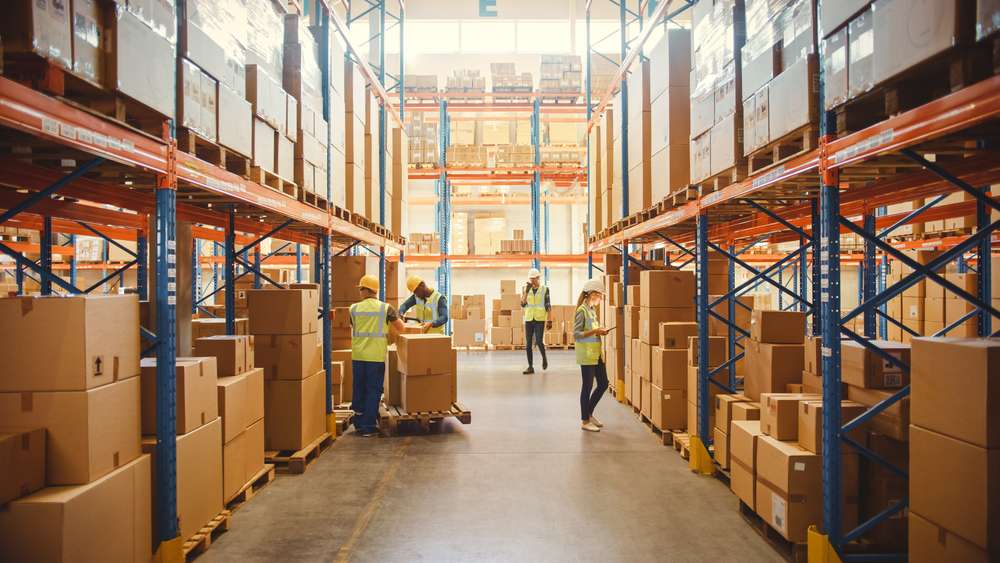Why Packaging Jobs Are Becoming a Surprisingly Stable Career Path Worldwide
In an age of automation and global logistics, packaging has quietly evolved into one of the most resilient and underestimated industries. From sustainable materials to high-demand fulfillment roles, the field offers steady growth, diverse opportunities, and a unique blend of creativity with technical precision. Discover why professionals from all backgrounds are exploring this path — and what makes it more secure than ever in a shifting global market.

The global packaging industry employs millions of workers across diverse roles, from production line operators to quality control specialists and packaging engineers. This sector has demonstrated remarkable resilience during economic fluctuations, maintaining steady employment levels even when other industries face significant downturns. The combination of essential product needs, technological advancement, and growing environmental consciousness has created a unique employment landscape that continues to expand worldwide.
Evolving Trends in the Packaging Industry
Technological innovation has fundamentally reshaped packaging operations, creating new job categories while enhancing existing roles. Automated packaging systems require skilled technicians for operation, maintenance, and programming. Smart packaging technologies incorporating sensors and tracking capabilities demand workers with technical expertise in electronics and data management. Sustainable packaging initiatives have generated positions focused on eco-friendly material development, recycling processes, and environmental compliance. These evolving trends have elevated packaging work from simple manual labor to sophisticated technical careers requiring specialized knowledge and continuous learning.
Global Demand for Skilled Packaging Workers
Worldwide demand for packaging professionals continues to grow across multiple sectors. The pharmaceutical industry requires workers trained in sterile packaging procedures and regulatory compliance. Food packaging demands expertise in safety protocols, preservation techniques, and contamination prevention. Consumer goods packaging emphasizes design aesthetics, brand protection, and shelf appeal optimization. Industrial packaging focuses on durability, transportation efficiency, and cost-effective material usage. This diverse demand creates opportunities for workers to specialize in specific industries while maintaining transferable skills applicable across sectors.
Career Stability in Industrial and Logistics Sectors
Packaging careers benefit from their integral connection to essential supply chain operations. Unlike industries subject to consumer discretion or economic cycles, packaging remains necessary regardless of market conditions. Products require packaging for protection, identification, and distribution whether economies expand or contract. The rise of e-commerce has particularly strengthened packaging employment, as online retail demands specialized packaging solutions for shipping, handling, and customer presentation. Logistics integration has created hybrid roles combining packaging expertise with supply chain knowledge, further enhancing career stability and advancement opportunities.
| Job Category | Typical Providers | Salary Estimation |
|---|---|---|
| Production Operator | Manufacturing Companies | $25,000 - $40,000 annually |
| Quality Control Specialist | Food & Pharmaceutical Companies | $35,000 - $55,000 annually |
| Packaging Engineer | Design & Technology Firms | $50,000 - $80,000 annually |
| Maintenance Technician | Industrial Facilities | $40,000 - $65,000 annually |
| Sustainability Coordinator | Corporate & Environmental Firms | $45,000 - $70,000 annually |
Prices, rates, or cost estimates mentioned in this article are based on the latest available information but may change over time. Independent research is advised before making financial decisions.
The packaging industry offers multiple advancement pathways that accommodate different educational backgrounds and career goals. Entry-level positions provide hands-on experience and skill development opportunities. Technical roles reward specialized training and certification programs. Management positions recognize leadership abilities and operational expertise. Entrepreneurial opportunities exist for workers interested in starting packaging service businesses or developing innovative solutions. Cross-industry mobility allows packaging professionals to transition between sectors while utilizing core competencies, providing flexibility and career longevity.
Workforce development programs and industry partnerships have strengthened the packaging employment pipeline. Community colleges offer packaging technology programs aligned with industry needs. Professional associations provide certification courses and continuing education opportunities. Apprenticeship programs combine classroom learning with practical experience. These educational initiatives ensure workers develop relevant skills while helping employers access qualified candidates. The industry’s commitment to workforce development demonstrates long-term stability and growth potential for career-minded individuals.
Packaging careers have evolved from temporary employment solutions to sustainable professional pathways. The industry’s essential role in global commerce, combined with technological advancement and environmental initiatives, has created diverse opportunities for workers seeking stable employment. As consumer behaviors continue shifting toward online purchasing and sustainable practices, packaging professionals will remain in high demand across multiple sectors. This career path offers the rare combination of job security, skill development, and advancement potential in an increasingly competitive employment landscape.




